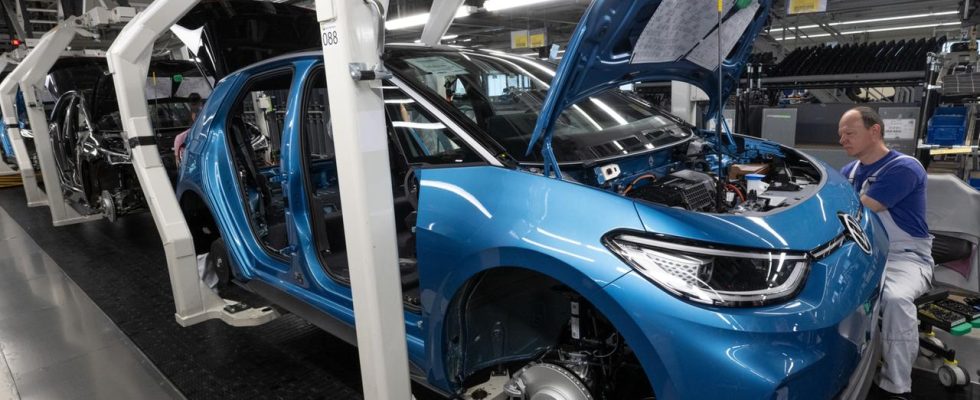German manufacturers were able to sell significantly more electric cars last year – abroad, for example in China. Experts demand that the industry in Germany needs to change more quickly.
It’s initially good news for German car manufacturers: worldwide, they were able to increase sales of their electric vehicles by 47 percent last year. Business is going particularly well in the important sales market of China. “They have come back impressively with competitive models, even outside the premium market,” says Felix Kuhnert, partner and automotive leader at the consulting firm PWC.
The switch to e-mobility is politically desired
From 2035, no new combustion vehicles will be registered in the EU. The industry is reacting. Mercedes-Benz already has several fully electric vehicles on offer. Audi will flip the switch in the course of 2026 and from then on will only release electric models for the global market. BMW does not want to give a date for the phase-out of combustion engines, but rather react flexibly to market developments. The ADAC has presented a long list of how the manufacturers want to position themselves.
The change is not a sure-fire success
The switch to alternative drive types poses major challenges for car manufacturers. Building electric cars means changing the entire production processes in the factories. Employees need to be retrained. Highly specialized engineers who have focused on the production of diesel vehicles or gasoline engines are no longer needed. The use of software plays a larger role than before. And the competition never sleeps.
Years ago, Tesla shook up the entire industry. Now the Chinese are catching up and are coming onto the market with their own purely electric vehicles.
China’s largest exporter
Last year, China replaced Japan as the largest exporter of cars. Japanese exports amounted to 4.42 million vehicles, according to the latest figures from the Japanese Manufacturers Association. Chinese manufacturers had previously reported 4.91 million cars exported. This may be due to the fact that Toyota and other Japanese manufacturers have long relied on hybrid technology. In China, e-mobility has been a priority from the start. But that’s not it alone. Chinese manufacturers offer a wide range of products, including cheaper models. The concept seems to work.
“In the vehicle classes up to 50,000 euros, i.e. the middle class and the small car class, the Chinese will capture a decent market share,” believes car expert Jürgen Pieper. “They will really cause problems for the Europeans and the Germans in the next one or two years.”
German manufacturers have missed trends
Years of success with high-quality, high-performance cars have made German manufacturers a bit sluggish, says Jürgen Pieper. For a long time, people believed that they could continue driving in the usual way and reacted too slowly to a Tesla and also to the Chinese. “There is still a lot of rethinking that needs to happen.” Above all, the industry must react more quickly.
The fact that subsidies for vehicles with alternative drives have been eliminated has recently caused sales of such vehicles to plummet, including here in Germany. This is hardly surprising for Jürgen Pieper. “Then the German buyer says, what the heck. Why should I spend 5,000 or 10,000 euros more on a German car. I don’t want that anymore. I think this danger has been recognized, but I don’t see the changed strategy yet.”

